Health Benefits of Peanuts Powder
Peanuts Vitamins & Minerals
Vitamin E:
Vitamin E is a dietary antioxidant that helps to protect cells from oxidative stress, a normal, yet damaging physiological process.Magnesium:
Magnesium is important for muscle function including the heart, enzyme function and energy production.Folate:
Folate is needed for cell division, which means that adequate folate intake is especially important during pregnancy and childhood when tissues are growing rapidly.Copper:
Copper is essential for red blood cell formation and for healthy blood vessels, nerves, immune system and bones.Phosphorus:
Phosphorus is important for the formation of teeth and bones, cell growth and muscle function, as well as helping the body use vitamins to create energy for cells.Fibre:
Fibre adds bulk to your diet and helps you feel full longer while aiding in digestion (6). In fact, the Dietary Guidelines for Americans urge Americans to consume more fibre-rich plant foods for better health.Health Benefits of Peanuts
Rich in Energy:
Peanuts are rich in energy (567 calories per 100 g) and contain health benefiting nutrients, minerals, antioxidants and vitamins that are essential for optimum health. They compose sufficient levels of monounsaturated fatty acids (MUFA), especially oleic acid. MUFA helps lower LDL or "bad cholesterol" and increases HDL or "good cholesterol” level in the blood. Research studies suggest that the Mediterranean diet which is rich in monounsaturated fatty acids help prevent coronary artery disease and stroke risk by favouring a healthy serum lipid profile.Dietary Protein:
Peanut kernels are a good source of dietary protein; compose fine quality amino acids that are essential for growth and development. Peanuts contain high concentrations of polyphenolic antioxidants, primarily p-coumaric acid. This compound has been thought to reduce the risk of stomach cancer by limiting the formation of carcinogenic nitrosamines in the stomach. Peanuts are an excellent source of resveratrol, another polyphenolic antioxidant. Resveratrol has been found to have a protective function against cancers, heart disease, degenerative nerve disease, Alzheimer's disease, and viral/fungal infections. Resveratrol may reduce stroke risk through altering molecular mechanisms in the blood vessels (reducing susceptibility to vascular damage through decreased activity of angiotensin, a systemic hormone responsible for blood vessel constriction that would elevate blood pressure), and by increasing production of the vasodilator hormone, nitric oxide. Roasting/boiling enhances antioxidant bioavailability in the peanuts. It has been found that boiled peanuts have two and four-fold increase in isoflavone antioxidants biochanin-A and genistein content, respectively. The kernels are an excellent source of Vitamin-E(α -tocopherol); containing about 8 g per100 g. vitamin-E is a powerful lipid-soluble antioxidant which helps maintain the integrity of mucosa and skin by protecting from harmful oxygen-free radicals. The nuts are packed with many important B-complex groups of vitamins such as riboflavin, niacin, thiamin, pantothenic acid, vitamin B-6, and folates. 100 g of peanuts provide about 85% of RDI of niacin, which contributes to the health and blood flow to the brain.
The nuts are a rich source of minerals like copper, manganese, potassium, calcium, iron, magnesium, zinc, and selenium.
Just a handful of peanuts per day provide enough recommended levels of phenolic antioxidants, minerals, vitamins, and protein.
The nuts are packed with many important B-complex groups of vitamins such as riboflavin, niacin, thiamin, pantothenic acid, vitamin B-6, and folates. 100 g of peanuts provide about 85% of RDI of niacin, which contributes to the health and blood flow to the brain.
The nuts are a rich source of minerals like copper, manganese, potassium, calcium, iron, magnesium, zinc, and selenium.
Just a handful of peanuts per day provide enough recommended levels of phenolic antioxidants, minerals, vitamins, and protein.
Tags:
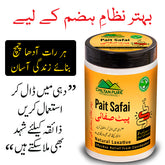

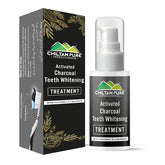

![Red Onion Oil 🧅 Reduces Hair Fall & Accelerates Hair Regrowth [پیاز کا تیل].. Trending.... 🔥 - ChiltanPure](http://chiltanpure.com/cdn/shop/products/red-onion-oil-reduces-hair-fall-amp-accelerates-hair-regrowth-piaz-ka-til-trending-394813_165x.jpg?v=1707464619)
![Red Onion Oil 🧅 Reduces Hair Fall & Accelerates Hair Regrowth [پیاز کا تیل].. Trending.... 🔥 - ChiltanPure](http://chiltanpure.com/cdn/shop/products/red-onion-oil-reduces-hair-fall-amp-accelerates-hair-regrowth-piaz-ka-til-trending-329640_165x.jpg?v=1708127491)
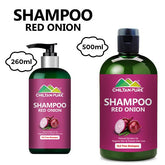

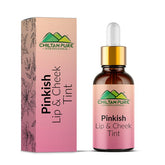

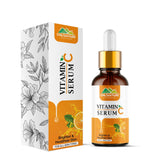

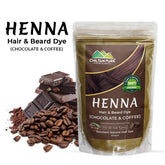



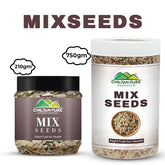

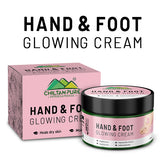



Leave a comment
Please note, comments need to be approved before they are published.